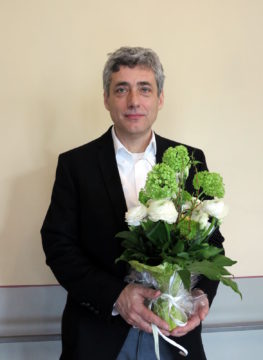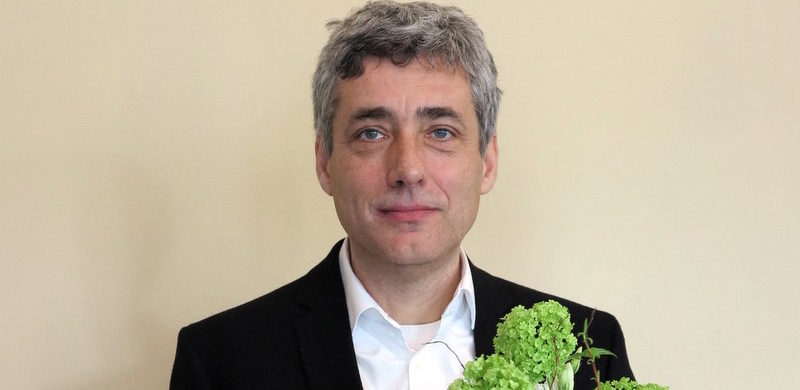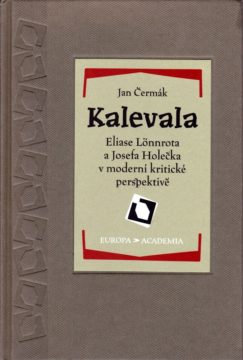Jan Čermák 2014

Professor Jan Čermák at the award ceremony in the music hall at Vanha ylioppilastalo, Helsinki on February 27, 2015. Photo: Elina Lampela/ the Kalevala Society.
Professor Jan Čermák (b. 1962) is an English language professor and researcher within the field of historical linguistics at the Charles University in Prague. He is specialised in Old English and Early Middle English philology and literature research. His interest in epic tales and the Finnish language has also introduced the Kalevala to him. In the autumn of 2014, the publishing company Academia of the
Czech Academy of Sciences published the Kalevala as a book with more than 1 000 pages in the Czech language including commentaries. Jan Čermák was the driving force behind this work. The director of the Finnish language department at the Charles University, Lenka Fárová, and Jan Franta, who designed the layout, helped him. Josef Holeček did the first Czech translation of the Kalevala as early as in 1894.
The publisher suggested first that Čermák would do a new translation, but in the end, they agreed to publish the translation by Josef Holeček with additional comments. The book approaches Holeček’s translation from a critical point of view. Besides the Kalevala, it contains a comprehensive additional part, in which research findings on the epic are discussed from a linguistic, cultural and historical as well as from an ethnographic point of view. An article on the evolution of Finnish culture and literature in relation to other epic tales in the world is also added to the book. There are also eight of the Finnish Golden Age artist Akseli Gallen-Kallela’s Kalevala themed works in the book in order to bring some visual extra to the work.
Čermák praises the translation by Holeček and says that it is excellent. It is exact and has a very rich vocabulary. The most fundamental difference between the Czech translation and Lönnrot’s original book is, according to Čermák, in the nature of the language.
– The words in the Czech language are considerably shorter than in the Finnish language, and therefore, Holeček has often tried to fill in the empty spaces in the verses with adjectives. Thus, the Kalevala in Czech is notably more descriptive than the original version, the language is almost ornate.
In Čermák’s opinion the Kalevala has in the Czechia been known only among linguists and those who are interested in mythology. Thus, his wish is that the updated book would make the epic more easily accessible also outside the academic circles. And the idea of a new translation is not impossible. Čermák believes that it is easier for the person who makes a new translation now when critical comments are available.
Jan Čermák knows the world of epics very well. He has translated, among others, the Beowulf, which was written in Old English, into Czech. Can you compare it to the Kalevala?
– I approached the text in the Beowulf as a translator and the text in the Kalevala as an interpreter, and thus, I would say that these two can be only partially compared to each other. The structure of the Kalevala is much deeper and more complex than the Beowulf. Thematically it is much more versatile. The theme in the Beowulf is the duality of paganism-Christianity whereas the Kalevala contains several temporal and cultural layers, that we still recognise today, it is inspired by Scandinavia and Siberia and, furthermore, there are six times more verses in the Kalevala than in the Beowulf.
Čermák’s favourite parts of the Kalevala are the origin poems and the wedding laments.
– An interesting passage is also the one where Kullervo breaks his knife on a stone that has been baked inside a bread and how the occurrences that follow this foreshadow the forthcoming tragedy.
Jiří Peňás, There would be no Finland without the Kalevala, interview of Jan Čermák in Lidové noviny, 22.10.2014.
Veera Keskinen, Kalevalaseura palkitsi Jan Čermákin ja Pilvi Takalan. Interview of Jan Čermák, The Kalevala Society newsletter 17.2.2015.

